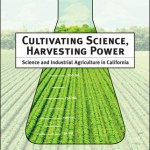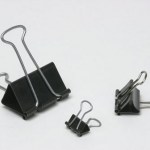
A couple weeks ago, I thought it would be interesting to start up a twitter account for the Science Scout stuff. Anyway, initially I put up a pretty vague "Increasing the N" tweet, in the hopes that we would get a few followers, and lo and behold, we have about 120 right now.
Anyway, I've been thinking about what exactly would be the flavor of tweets coming from this account. In other words, I'm not interested in an account for me (Dave Ng) per se, but rather one that is just so delicious science geeky that folks would think it's funny to join. Kind of like a daily dose of geekness -…
You know the story: we can have Keanu Reeves and Sandra Bullock costarring and filmed in scenes where they are frantically blogging to make sure they reach a certain number of readers per day. Why? Because a crazy Dennis Hopper has rigged their computers to explode if they get less than 1000 visitors per day!
O.K. so that is a little lame for a movie premise, but nevertheless, April is going to be readership drive month for me. With the schedule lightening up just a titch, I'm going to go and - wait for it - contribute to this website at a much more pronounced pace.
Because, you know - as…
With the exception of my slip up during the introductions (I introduced Charles as "Sir Charles..."), here is a pretty great video of old Chuck talking to a class of high school students.
This was at a recent high school science conference we hosted, where we focused pretty much on all things evolution. And it was awesome to get Dr. Greg Bole at our Zoology Department to come on out and give us his interpretation of Charles Darwin (although it was too bad, he didn't still have the massive sideburns).
The questions at the end are particularly cool, with some pretty level headed answers…
Just an accounting of the last month of local food, sustainable agriculture, and science/food/safety articles is difficult to produce. Let alone a full understanding of them. One problem with studying the topic is that the proliferation of literature on sustainable ag and its associated elements brings with it sifting and organizing difficulties. It's a microcosm of the problem of the internet itself - more information leads to more traffic, leading to slower travel. How to make sense of it all?
Here is a quick sampling of some recent literature on what we might call the current "food"…
Eight choices for the best example of a design flaw.
#2
#3
#4
#5
#6
#7
#8
These were forwarded to me by a colleague, who had them forwarded to her by a friend, who, guess what, had them forwarded from somewhere else. I thus do not know their origin. The pictures are either (a) legitimate, (b) fabricated, or (c) doctored versions of legitimate things. I don't know.
This post was written by guest contributor Jody Roberts.
Follow this link for his most recent contribution to The World's Fair.
The philosopher Marjorie Grene passed away on Monday, 16 March, at the age of 98. Grene's life is difficult to sum up in a few words, and I don't want to do that anyhow, since plenty of others have and surely will in much better fashion than I can muster. But since I imagine most will be unfamiliar with her work, I quote here from a letter composed by Richard Burian, a dear friend and colleague:
Marjorie Grene passed away March 16 at age 98 after a brief illness…
Landfills are leading consumption indicators. Their use is declining in the recession. The Washington Post reported over the weekend that the Loudon County landfill (that's in Northern Virginia) has seen a decrease of 30% in the past year; nearby Prince William's County has seen a 20% decrease. Loudon County's landfill was slated to close in 2012, filled to capacity by that time. Because of the decrease in consumption--fewer Circuit City boxes to throw away, fewer packages and old appliances, more saving and reuse--it will be open for an additional year and half.
In an extravagantly…
The Morning News's Fifth Annual Tournament of Books, real March madness, is a true highlight of the near-Spring calendar. I'm told there is some other tournament this month, also capitalizing on the month "March" in its title. We'll have to look into that.
This TMN tourney has thus far seen four colossal upsets. In one bracket alone, the Booker Prize winner and PEN/Faulkner Award winner's were both taken down by lower-seeded upstarts. Shocking. Startling. Immense. Bloggable.
Note that Judge Jonah Lehrer, he of The Frontal Cortex, was the arbiter of one of these upsets, picking Mark…
Pt. I | Pt. 2 | Pt. 3 | Pt. 4
---
Part 4 with Christopher Henke, discussing his book Cultivating Science, Harvesting Power, follows below. All entries in the author-meets-blogger series can be found here.
WF: What do you make of the intersection of STS and agricultural studies?
CH: STS folks aren't often citing rural sociology, and vice-versa. I think the connections between these realms are greater than it might at first appear. Historians of science like Margaret Rossiter, Charles Rosenberg, and Deborah Fitzgerald were writing about agricultural science some time ago (as a sociologist…
Pt. I | Pt. 2 | Pt. 3 | Pt. 4
---
Part 3 with Christopher Henke, discussing his book Cultivating Science, Harvesting Power, follows below. All entries in the author-meets-blogger series can be found here.
WF: It's not just that you use Cooperative Extension as a case study of science, agriculture, and power, but that you provide some sharp detail on specific growers. In that vein, I liked your study of Spreckels quite a bit. The sugar beet grower. Could you speak to the basic arc of that case? What happens with Spreckel?
CH: The Spreckels case is actually one of my favorite parts of the…
Wherein the author, Dave Frye, finds in his doctoral research that "it remains fairly safe to say that the modern science of cereal studies began no earlier than with the 1764 publication of Linnaeus's De Cerialibus." This, despite some early finds about "the famously lactose-intolerant Pythagoreans."
There are some good findings in Frye's work, and one wonders how long it might be until his research is complete. I was particularly struck by the solid integration of the history of science and food studies into true, deeper cultural and political context. Many graduate students seek that…
Yes, it has been tough going of late, but things are looking up, so says Onion writer Peter Waldron.
Check out: "LEAKED DEPARTMENT OF INTERIOR MEMO THAT REMOVES AMERICAN SCIENTIST FROM ENDANGERED SPECIES LIST" at the Science Creative Quarterly. (I especially like the breeding bit)
Pt. I | Pt. 2 | Pt. 3 | Pt. 4
---
Part 2 with Christopher Henke, discussing his book Cultivating Science, Harvesting Power, follows below. All entries in the author-meets-blogger series can be found here.
WF: Now I can get back to the interpretive framework and your own concepts when understanding your empirical evidence. "Repair" is a guiding framework for you here, a way of approaching, understanding, and explaining your research findings. So what do you mean, repair?
CH: We use the term repair in everyday life to describe the process of fixing things---sociologists use repair as a…
I was just reading a short article today in the economist which listed the amount of water needed to produce a few common beverages. The stats are actually something else. In particular, a single cup litre of coffee requires 1120 litres of water (this is the same volume of water as a 104cm x 104cm x 104cm cube).
Although the chart is kind of neat at the economist, I figured it might be more interesting if there was a way to translate that 1120 litres into a more curious image. Anyway, above is a work in progress, using a great tilt-shift image by Flickr user "crotaphytus" and then a…
The World's Fair is pleased to offer the following discussion about Cultivating Science, Harvesting Power: Science and Industrial Agriculture in California (MIT Press, 2008), with its author Christopher Henke. Henke is an assistant professor of sociology at Colgate University, an STS scholar, and a contributor to Colgate's environmental studies program.
Cultivating Science, Harvesting Power, says its publisher, "explores the ways that science helped build the Salinas Valley and California's broader farm industry." In doing so, Henke provides an account of "how agricultural scientists and…
I am an ardent critic of the unexamined claim that technology equals progress, straightforwardly, inevitably, universally. (Here are some samples: one, two, three.) So I am pleased to report new findings unearthing examples that don't fall prey to such critique:
1. Binder clips
2. Luggage with wheels
3. Netflix
That is all.
"The [Environmental Justice (EJ)] movement," writes Gwen Ottinger, "was galvanized in the early 1980s by the observation that toxic chemicals and other environmental hazards are concentrated in communities of color. EJ activists, many of them veterans of the civil rights movement, began to argue that social equality demanded an end to this 'environmental racism.' Currently, however, it is not equality but health that dominates grassroots activists' campaigns against chemical contamination."
Ottinger is a fellow at the Chemical Heritage Foundation's (CHF) Center for Contemporary History and…
The industrialization of agriculture, egg version.
An egg factory in China. Click on image for link to original site, credited to AP Photo/Andy Wong as posted at the Globe by Alan Taylor.
The Boston Globe has an elegant photo series called The Big Picture at its website. I don't know why this isn't more publicized. Maybe it is; maybe I've been distracted. I got lost for a half hour surfing around past entries. Above is one of the images from a series, "At Work," and below are selections from that set. I put these into the series on Landscapes and Modernity here at the blog. (Try trees;…
I had the chance to see a talk by William Cronon last week here at U.Va. He's a professor at the University of Wisconsin and a recognized world leader in environmental history and environmental studies. His work, while helping define the field of environmental history as it became one in recent decades, also transcends it; there's this too, his skill at public speaking is top shelf. He is and has been for some time working on a book called, simply, The Portage. The talk last week was from that book. Taking one location in Wisconsin--Portage--only miles from which John Muir lived when his…







